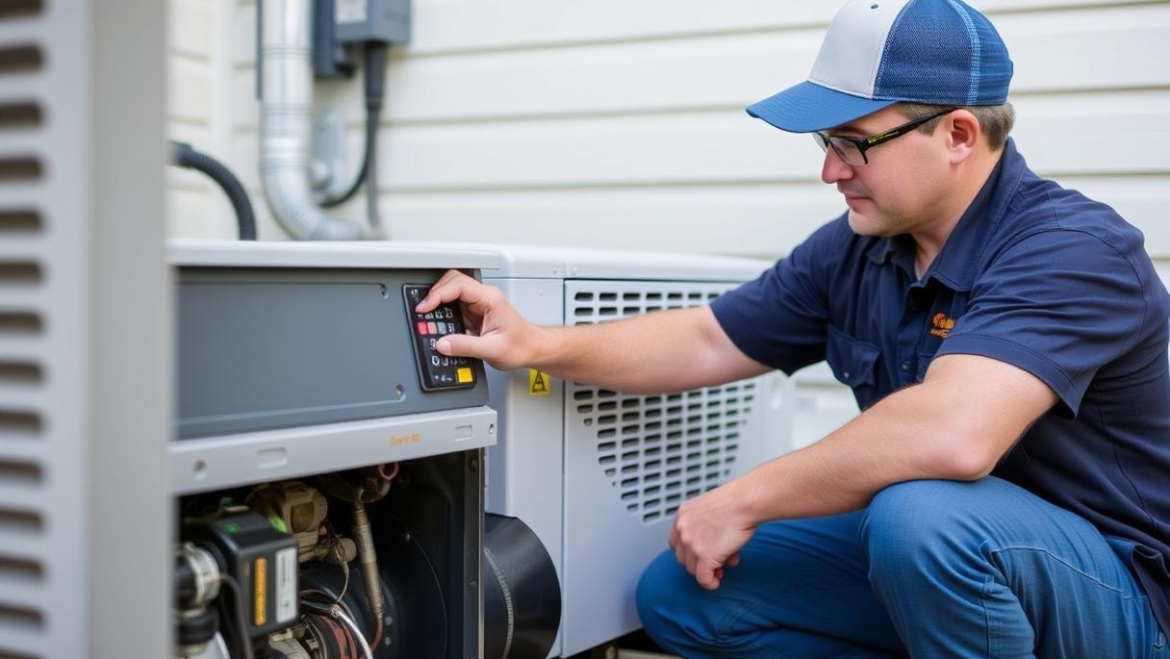Different homes have different requirements when it comes to choosing a generator.
Some may only need a small, 1 kilowatt (kW) generator to keep a few appliances on, while others require a much larger 20 kW generator to power everything in their home.
Whole home generators are a significant investment. That’s why you want to get it right the first time you purchase it for your home.
Here’s a quick guide to choosing a whole-house backup generator that will meet your home’s requirements.
How to Calculate Power Requirements
The first thing you need to do when buying a home generator is to calculate your power requirements.
For example, say you live in New Jersey, where power outages during storms are common. You want to purchase a whole-house backup generator to operate your refrigerator, heating system, lights, and a few outlets.
To calculate your power requirements, you’ll need to do the following:
1. List all appliances
Identify the appliances you want to turn on during a power outage, such as the refrigerator, heating system, lights, and outlets.
If you need to use medical equipment or run a home server where permission to access HTTP resources is restricted, consider these as well.
Find the wattage rating of each appliance. For example:
- Refrigerator: 700 watts
- Heating system: 1,500 watts
- Lights: 500 watts
- Outlets: 1,000 watts (combined total for small appliances and charging devices)
2. Determine Your Wattage Needs
Add the wattages to find the total power requirement.
For example, if you need to power a refrigerator (700 watts), a few lights (300 watts), and a heater (1500 watts), the total wattage required equals 2,500 watts.
However, many appliances need additional power when they start up, known as surge wattage. Account for this by adding 20-25% more wattage to your total.
3. Calculate Your Wattage Requirements
Use this formula to determine the appropriate generator size:
Total Running Wattage + Surge Wattage (20-25% of Running Wattage) = Generator Size in Watts
For the previous example:
2,500 watts (running wattage) + 625 watts (25% surge wattage) = 3,125 watts.
In this case, a generator with at least 3,125 watts capacity would suffice.
Some appliances, like refrigerators and heating systems, require extra power at startup. Check the starting wattage and ensure the generator can handle this surge.
4. Select a Home Generator
Once you know the total wattage, select a home generator with a wattage rating slightly higher than your total power requirement to handle unexpected power needs.
In this scenario, the homeowner would look for a generator with a capacity of at least 4kW to ensure reliable power during outages.
Standby Generators
Standby generators typically use natural gas or propane as fuel sources. Runs on liquid cooling systems to generate less heat when in use. More complex to maintain.
Portable Generators
Portable generators are commonly powered by gasoline. They are much smaller than their standby generator counterparts and are usually air-cooled. But they’re easier to maintain.
Inverter Generators
Inverter generators can run on gasoline or diesel. They can also be air-colled or liquid-cooled. Maintenance depends on use.
5. Finalize Your Decision
Beyond the initial purchase price, account for installation costs, regular maintenance, and fuel expenses.
Weigh these ongoing costs against the potential savings from preventing power outages and avoiding the inconvenience of being without electricity.
After thoroughly considering these factors, you will be prepared to make an informed decision that provides peace of mind during power outages.
Install Your Residential Backup Generator Today With Danley 911 Home Services Electrical
Need help with finding the right generator for your home? Danley 911 Home Services Electrical has got you covered.
With our wide range of Generac-branded generators, you can feel confident that you will have backup power in case of an electrical outage.
Our licensed electricians are more than qualified to conduct generator installation, ensuring the safety and peace of mind of your family. To learn more about their services, give them a call at (732) 432-0164.
FAQ About Whole-House Backup Generator
How much does a whole-house backup generator cost?
The cost of installing a whole-house backup generator typically ranges from $7,500 to $18,000, depending on the size, brand, and specific installation requirements.
Is a whole-house backup generator better than a portable generator?
A whole-house backup generator offers more power and convenience by automatically providing electricity during outages.
This makes it more suitable for long-term use compared to a portable generator, which is less powerful and requires manual setup.
Do you need a licensed professional to install a whole-house backup generator?
Yes. For safety and security purposes, it’s highly recommended that you call a licensed professional to install your generator.

